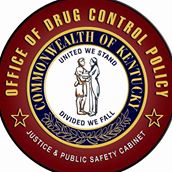 There will be no residential garbage, recycling or yard waste collection within the Louisville Metro Urban Services District (former Louisville city limits) on Independence Day, Tuesday July 4. The usual Tuesday collections will be made on Wednesday, and the rest of the week will follow the same pattern of a one day delay.
There will be no residential garbage, recycling or yard waste collection within the Louisville Metro Urban Services District (former Louisville city limits) on Independence Day, Tuesday July 4. The usual Tuesday collections will be made on Wednesday, and the rest of the week will follow the same pattern of a one day delay.
The Waste Reduction Center, at 600 Meriwether Avenue, all staffed recycling centers and the Haz Bin hazardous materials facility at 7501 Grade Lane will also be closed on July 4. They will resume normal operations on Wednesday, July 5.
Residents who rely on private haulers for garbage, recycling and yard waste collection should consult those haulers about holiday collection schedules.

Photo: Louisville Metro Parks and Recreation
Metro Parks & Recreation is offering an affordable family golfing package at its nine golf courses on Tuesday, July 4.
For only $25, a family of up to four members can play nine holes at any Metro Parks course. The $25 includes greens and cart fees, and families can take advantage of the deal after 4:30 p.m. on July 4.
Families are encouraged to call in advance to book a tee time at the golf course of their choice.
“Our courses are in great shape, and we’re hoping for a lot of play from families this summer,” said Metro Parks and Recreation Director Seve Ghose. “This special leaves plenty of room to play nine holes and enjoy a family barbecue and even fireworks at night.”
Metro Parks golf courses are open from daylight to dark seven days a week.
ABOUT METRO PARKS GOLF:
Louisville’s nine public golf courses offer a quality golfing experience at some of the most affordable prices in the nation. Each course has its own unique character, and some consistently rank among Kentucky’s best and most challenging courses. The nine municipally-owned golf courses meet the needs of everyone from beginners to scratch golfers. For more information, visit https://louisvilleky.gov/government/parks/golf-courses
Bobby Nichols Golf Course, 4301 E. Pages Lane, 502/937-9051 (9 holes)
Charlie Vettiner Golf Course, 10207 Mary Dell Lane, 502/267-9958 (18 holes)
Cherokee Golf Course, 2501 Alexander Road, 502/458-9450 (9 holes)
Crescent Hill Golf Course, 3110 Brownsboro Road, 502/896-9193 (9 holes)
Iroquois Golf Course, 1501 Rundill Road, 502/363-9520 (18 holes)
Long Run Golf Course, 1605 Flat Rock Road, 502/245-9015 (18 holes)
Seneca Golf Course, 2300 Pee Wee Reese Blvd, 502/458-9298 (18 holes)
Shawnee Golf Course, 460 Northwestern Parkway, 502/776-9389 (18 holes)
Sun Valley Golf Course, 6505 Bethany Lane, 502/937-9228 (18 holes)
 The nationwide opioid epidemic continued taking its lethal toll on the Commonwealth last year, driving up overdose deaths to unprecedented levels with an ever-stronger mix of fentanyl, heroin and prescription pills.
The nationwide opioid epidemic continued taking its lethal toll on the Commonwealth last year, driving up overdose deaths to unprecedented levels with an ever-stronger mix of fentanyl, heroin and prescription pills.
According to a report released by the Kentucky Office of Drug Control Policy, fatal overdoses totaled 1,404 in 2016, a 7.4 percent increase from the previous year. Of those cases, toxicology data was available for 1,330 deaths.
Fentanyl, an extremely potent opioid that is often blended with heroin and other drugs, contributed to nearly half of all fatalities during the year. It was a factor in 623 lethal overdoses, up from 459 in 2015. Heroin was involved in 456 deaths.
“Nearly every community in Kentucky experienced a fatal drug overdose last year— if that’s not a wake-up call, I don’t know what is,” said Gov. Matt Bevin. “We don’t have the luxury of pretending there isn’t a massive problem. The consequences of the opioid crisis are far-reaching, affecting every corner of our communities. We must stand united against the opioid scourge and work together to find solutions. Failure is not an option.”
The numbers are part of the 2016 Overdose Fatality Report, which was compiled with data from the Kentucky Medical Examiner’s Office, the Kentucky Injury Prevention & Research Center and the Kentucky Office of Vital Statistics. A copy of the full report is available here.
It shows that Louisville, Lexington and Northern Kentucky experienced the highest number of lethal overdoses, but nearly every community suffered fatalities. Leslie County had the highest number of deaths on a per capita basis, followed by Bell, Powell, Gallatin and Campbell counties.
Those most likely to lose their lives to a drug overdose were people between the ages of 35 and 44. More than 400 in that age group died in 2016.
“These are mothers and fathers, veterans, co-workers and friends,” said Kentucky Justice Secretary John Tilley. “We are in a daily battle to reach them before we lose them, and we must continue tapping every available resource to confront this problem with both force and compassion.”
Fentanyl, a Schedule II narcotic, began overtaking heroin in 2015 as the leading contributor to overdose deaths in Kentucky. The drug is 30 to 50 times more potent than heroin and can prove deadly at very low levels, according to the U.S. Drug Enforcement Administration (DEA).
At the same time, illicit drug cartels have been producing newer and more potent fentanyl analogues, which further increases the risk of death. Carfentanil, for instance, is approximately 100 times more potent than fentanyl, the DEA reports.
Van Ingram, executive director for the Kentucky Office of Drug Control Policy, said fentanyl is frequently mixed with heroin or pressed into a pill form, leaving many users unaware that they are ingesting the drug. That has escalated an already deadly crisis of opioid abuse that started more than a decade ago with prescription painkillers.
“Fentanyl’s impact is really unprecedented,” Ingram said. “Users have no way of knowing what drugs they are taking, and even the smallest amounts can trigger a lethal reaction. We’ve seen cases where a bad batch of drugs has led to dozens of overdoses in a single community overnight.”
Naloxone, a lifesaving antidote that can reverse an opioid overdose, is now widely available in many Kentucky communities; however, it is not always effective against fentanyl, Ingram said. Emergency responders are seeing cases that require several doses of naloxone to revive the victim.
“Government, healthcare, law enforcement – we are all working furiously to save lives,” Ingram said. “But even the best policies and medications have limits. That’s why it is critical that we continue taking a multi-faceted approach, and every Kentuckian can help by spreading the word about the dangers of these drugs.”
Kentucky is a national leader in drug control policy, and the Bevin Administration has worked with the Kentucky General Assembly over the past two years to ramp up the fight against opioids.
This year, the legislature passed House Bill 333, which gives the state flexibility to schedule new fentanyl analogues as they arrive on the streets. It also limits opioid prescriptions for acute pain to a three-day supply unless a doctor provides written justification in medical records for a larger amount.
In 2016, Gov. Bevin and the General Assembly also increased funding for anti-drug efforts in the state budget, allocating $15.7 million to combat opioids in the current fiscal year, up from $10 million the previous year. Another $16.3 million has been allocated for fiscal year 2018.
Among other significant findings in today’s report:
• Jefferson County had the most overdose deaths of any county with 364, up from 268 in the 2015 report. It also had the largest year-to-year increase in overdose fatalities.
• The largest decrease occurred in Kenton County, which had 22 fewer fatalities in 2016 compared to the previous year. Other counties with significant declines include Bell County, which declined by 10, and Knox County, which declined by 8.
The top five counties for heroin-related overdose deaths, using data from the Kentucky Medical Examiner and coroner reports, were:
- Jefferson County – 122
- Fayette County – 48
- Kenton County – 20
- Campbell County – 17
- Boone County – 12
The top five counties for overdose deaths by county, per capita, were:
- Leslie County – 66.25
- Bell County – 58.53
- Powell County – 56.51
- Gallatin County – 56.19
- Campbell County – 52.05
The top five counties for fentanyl-related deaths were:
- Jefferson County – 182
- Fayette County – 59
- Kenton County – 26
- Boone County – 25
- Campbell County – 21
The top five counties for deaths related to heroin and fentanyl in combination were:
- Jefferson County – 59
- Campbell County – 21
- Fayette County – 20
- Boone County – 12
- Kenton County – 11

Photo: Muhammad Ali Center
In the Shadows: Photography Exhibit by Howard Bingham opens to the public during a special “Night at the Museum” on Wednesday, July 5th from 5:00-8:00 p.m. at the Muhammad Ali Center. The exhibit, which is on display until January 21, 2018 and included in admission, contains over 50 carefully selected images photographs by Muhammad Ali’s best friend, who was also his personal photographer for over 50 years. Bingham passed away in December 2016.
In the Shadows features never-before-seen photos taken over four decades of Bingham’s career, capturing significant historical events in the United States, from social activism to pop culture, while revealing intimate photos of Muhammad Ali. This exhibit illuminates the relationship that the Ali Center shared with Howard in his role as the Center’s Honorary Curator of Photography, former Board Member of the Center, and as an unforgettable longtime friend of Muhammad Ali.
“Having Howard’s photographs displayed at the Center in the year following both he and The Champ’s passing is a demonstration of the greatness that both men have achieved during their time here on earth and the bond they shared for decades,” said Jeanie Kahnke, spokesperson for the Ali Center. “We hope that the community can come to experience new dimensions of both Howard and Muhammad’s intertwined legacies.”
The exhibit opens during a special preview night as part of the “I Am Ali” Festival on July 5th. “Night at the Museum” includes “open air” gallery talks throughout the evening about In the Shadows and Howard Bingham with the Center’s collections department, a discount admission price of $7 to the Center’s exhibits, and a performance by Commonwealth Theatre Center at 6:30 p.m. The performance will consist of a series of staged readings devised by artists and playwrights based on community reflections about Muhammad Ali’s Six Core Principles.
 As people make preparations for Fourth of July celebrations, Louisville Metro Animal Services asks that you keep your pets in mind. Each year, pets across the country find their way into shelters during this festive time. While many look forward to the traditional celebratory sights and sounds of fireworks glowing and booming across the sky, this can be a scary experience for pets.
As people make preparations for Fourth of July celebrations, Louisville Metro Animal Services asks that you keep your pets in mind. Each year, pets across the country find their way into shelters during this festive time. While many look forward to the traditional celebratory sights and sounds of fireworks glowing and booming across the sky, this can be a scary experience for pets.
Louisville Metro Animal Services is bracing for an influx of stray animals to hit the streets of Jefferson County. The loud noises associated with this holiday weekend often result in a spike in stray animals. When dogs experience a large amount of fear and anxiety at once, their initial response is to retreat. However, there are some preventative measures you can take to protect your pet(s) and keep them feeling safe.
- Leave pets inside
- Close all windows and curtains to muffle the sound of fireworks, and always provide plenty of food and water. Turning on a radio, television or fan also may help calm your pet. For pets who experience severe anxiety, owners may want to consult their veterinarian about prescribing a mild sedative to ease the pets’ stress. Owners who are leaving town for the holiday should consider boarding their pets.
- Leave pets at home during firework displays
- Animals have a heightened sense of hearing. The loud “booming” noise can be deafening and cause pets to panic and want to hide. Take pets for quiet walks before the festivities begin or after they end.
- Distract distressed or anxious pets
- If pets exhibit uncharacteristic behaviors, such as incessant pacing, crying or whining, owners should help distract them through play or another enjoyable pet activity. There are several products designed to help reduce anxiety in dogs, such as relaxing music and snug calming vests.
- Make sure pets are wearing collars with identification tags at all times
- This even applies to pets who only live indoors. The ID tag should include the owner’s current address and phone number. Microchipping is also important, in case pet’s collars or tags are lost.
- Keep pets away from alcohol
- Alcohol is extremely dangerous to dogs. Small amounts of alcohol can cause your dog to become dangerously intoxicated, go into a coma, or in severe cases, die from respiratory failure. Even beer is toxic. Fermented hops and ethanol are poisonous to dogs and cats.
- Clean up firework debris before letting pets outside
- If pets eat the debris, it may cause digestive problems or serious injuries. Owners should contact their veterinarian immediately if their pets have been exposed to any potentially toxic or poisonous substances.
 WHO:
WHO:
Dr. Joann Schulte, Director, Louisville Metro Department of Public Health and Wellness
WHAT:
The Department of Public Health and Wellness is asking any Jefferson County/Louisville Metro resident who attended Camp Blanton in Harlan County, Ky., June 5 through June 22, to contact LMPHW communicable disease staff at 502-574-8200.
WHY:
Several dozen Jefferson County individuals who attended the camp from June 5 to June 22 may have been exposed to bats. It is not known at this time whether or not the bats had rabies. To err on the side of caution, LMPHW staff need to talk to these families to determine risk. LMPHW is working in conjunction with the state department of health and other county health departments to evaluate the exposures to bats.
MORE:
Residents outside of Jefferson County who attended this camp from June 5 through 22 should call their local health department.
 Louisville’s resilience efforts will initially focus on strengthening education, racial equity, economic development and sustainability throughout the city — challenges identified in partnership with more than 200 citizens, Mayor Greg Fischer announced today.
Louisville’s resilience efforts will initially focus on strengthening education, racial equity, economic development and sustainability throughout the city — challenges identified in partnership with more than 200 citizens, Mayor Greg Fischer announced today.
Louisville is a member of 100 Resilient Cities – Pioneered by The Rockefeller Foundation, which seeks to build resilience to economic, social and physical challenges in cities worldwide. Each city is tasked with identifying its own “shocks” — sudden events such as natural disasters — and long-term challenges, or “stresses.”
“Louisville is on a rapid trajectory, with 63,000 new jobs and $11 billion in capital investments since 2011,” Mayor Fischer said. “That’s all the more reason we need to be strengthening ourselves against the stresses and shocks that could slow or even halt our momentum – be it a natural disaster, like a flood, or economic distress, like a major employer leaving the city. We can do this by working with partners to build resilience in education, racial equity, economic development and sustainability.”
Louisville identified education, racial equity, economic development and sustainability as the initial focus of the resilience efforts during a workshop in January that included city leaders and representatives from dozens of local agencies, nonprofits and businesses. A full report on the Agenda Setting Workshop was released today and can be read at https://louisvilleky.gov/sites/default/files/asw.pdf
Eric Friedlander, who was named the city’s chief resilience officer in April, will use the Agenda Setting Workshop report as he leads the crafting of a resilience strategy — an outline for how the city will strengthen itself against shocks and stresses that could disrupt or slow the city’s momentum. This begins the process of identifying, with the larger community, and preparing for, the most impactful shocks and stresses that Louisville will need to address.
(Learn more about Resilient Louisville)
“For Louisville to thrive as an entire community, we must be able to respond to inevitable shocks and address and minimize stresses,” Friedlander said. “That will be accomplished by examining how to build on our ongoing initiatives in the areas of education, racial equity, economic development and sustainability, and to launch new efforts that will lead to as stronger, more resilient Louisville.”
Mayor Fischer will discuss the city’s resilience efforts at 6 p.m. Thursday, July 6, at the Ali Center during the community conversation Capturing Ali’s Spirit: Creating a City of Peace.
 Weather
Weather Traffic
Traffic @LouisvilleDispatch
@LouisvilleDispatch @LouisvilleDisp
@LouisvilleDisp Subscribe
Subscribe